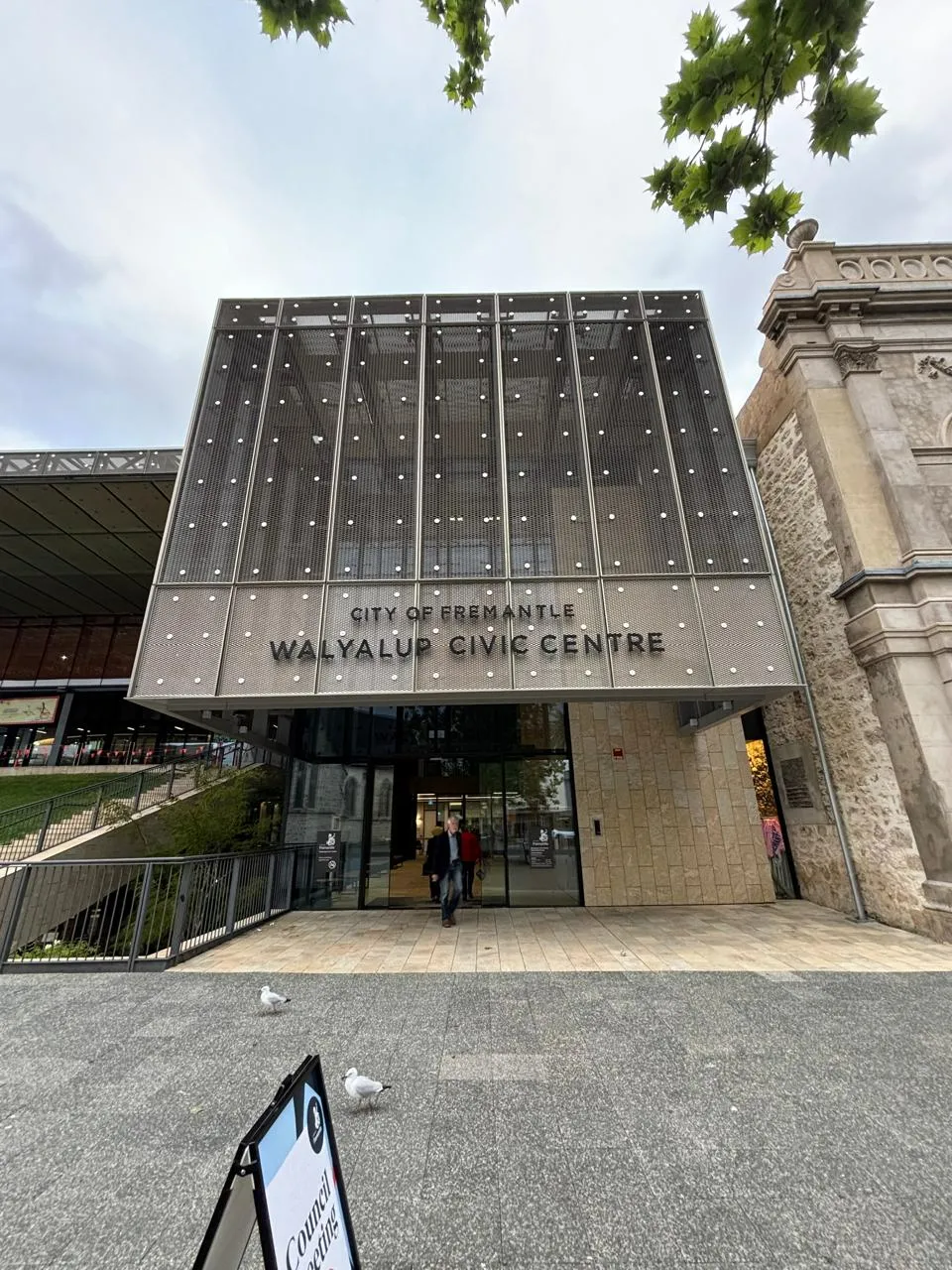Fremantle, October 2025 — A research team from Diponegoro University (UNDIP), led by Prof. Hartuti Purnaweni, Professor of Environmental Governance, and Junjung Sahala Tua Manik, S.Sos., M.A.P, from the Department of Public Administration, Faculty of Social and Political Sciences (FISIP UNDIP), conducted a study entitled “Waste Management in Fremantle, Western Australia: A Lesson Learned for Semarang City.”
This research is part of the UNDIP Professor Research Program, aimed at strengthening evidence-based policy in the field of waste management and environmental governance. The study aligns with UNDIP’s Research Master Plan (RINDUK) 2025–2029, particularly under the theme of poverty alleviation and food security through sustainable environmental management.
Collaboration and Welcome by the City of Fremantle
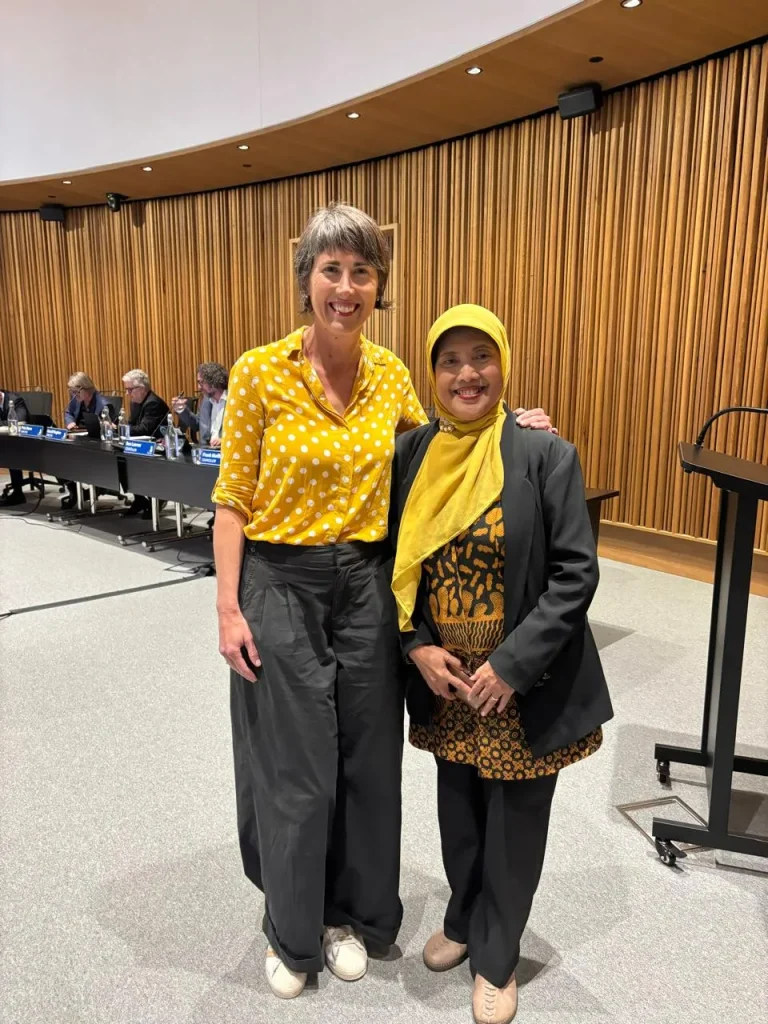
During their visit to the City of Fremantle Walyalup Civic Centre, Prof. Purnaweni and Junjung Sahala Tua Manik were warmly received by Fremantle Mayor Hannah Fitzhardinge, who expressed her appreciation for the collaboration between UNDIP and the City of Fremantle.
“Welcome to Fremantle, Prof. Purnaweni. We’re glad to support your research and look forward to stronger ties between our cities.”
— Mayor Hannah Fitzhardinge
This statement reflects the spirit of international cooperation and academic diplomacy toward advancing sustainable environmental governance. Prof. Purnaweni emphasized that Fremantle’s experience offers valuable insights for Indonesian cities in developing community-based and innovation-driven environmental policies.
Fremantle’s Waste Governance Model: Efficiency, Education, and Participation
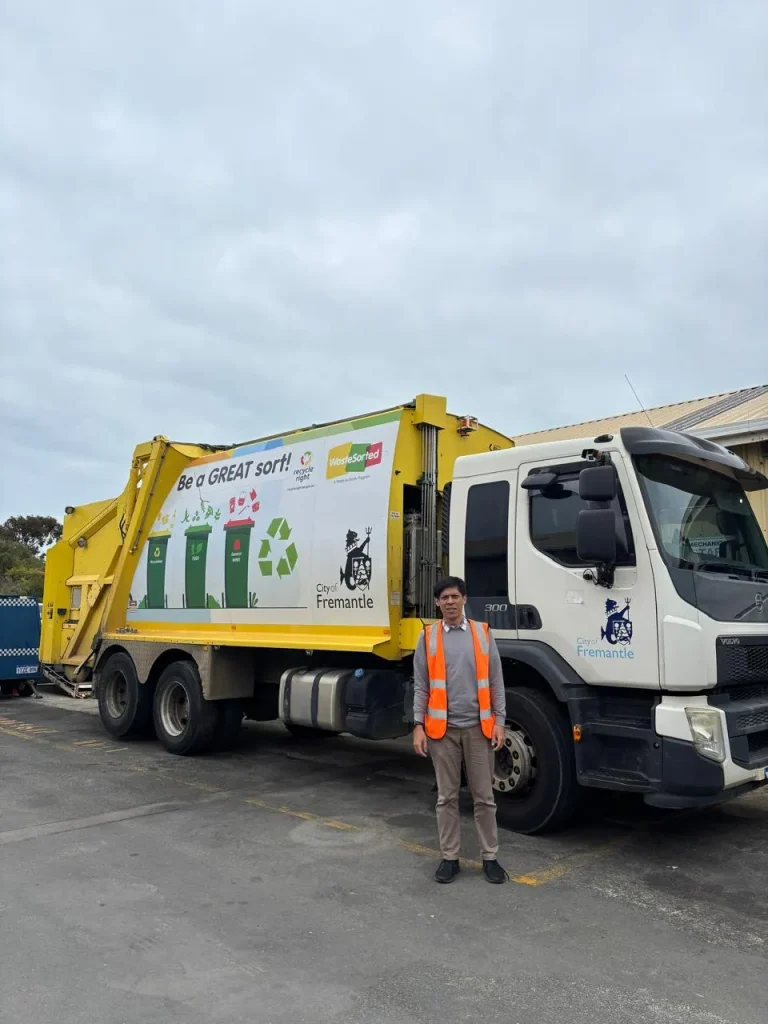
The City of Fremantle has developed an integrated circular economy-based waste management model, centered on the three-bin collection system implemented for all households.
The system separates waste into three categories:
- FOGO (Food Organics and Garden Organics) – green-lid bin for food scraps, leaves, grass, and garden waste;
- Recycling bin – yellow-lid bin for paper, glass, metals, and recyclable plastics;
- General waste bin – red or dark-green lid bin for non-recyclable residual waste.
Each waste type follows a specific collection schedule—FOGO is collected weekly, while recycling and general waste are collected alternately every two weeks.
This system has successfully reduced landfill-bound waste and improved the quality of compost and recyclable materials reintroduced to local markets.
Public education plays a central role in this model. The Fremantle City Council provides free kitchen caddies to help households sort organic waste and offers FOGO compost to residents at affordable prices.
Residents are also encouraged to use the Recycle Right App, a digital platform providing interactive guidance on waste types and collection schedules.
In addition, Fremantle runs citywide environmental campaigns such as Plastic Free July, which promotes reduced single-use plastic consumption under the slogan “Turn the tide, one choice at a time.”
This educational approach transforms waste management from a mere technical service into a sustained social movement shaping ecological awareness among citizens.
Visit to the Resource Recovery Group and Landfill Drive-Thru
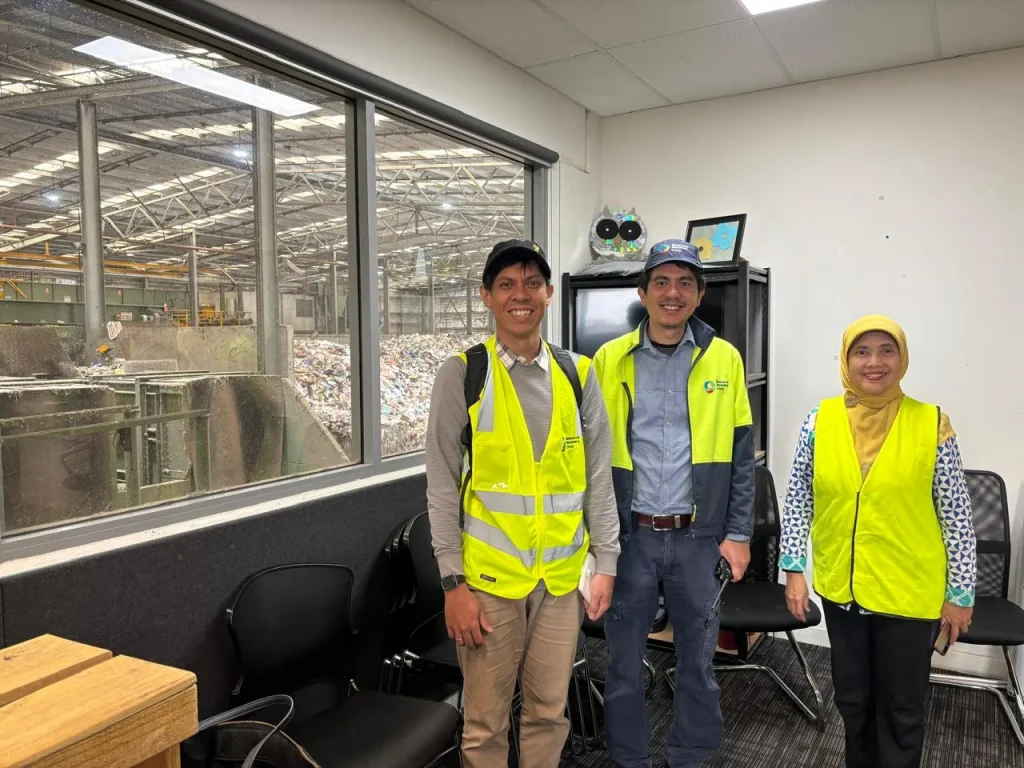
As part of the field study, the UNDIP team visited the Resource Recovery Group (RRG) in Canning Vale—a regional waste processing and recycling center that also functions as a public education hub.
RRG plays a key role in converting household waste into economically valuable materials such as glass, metals, and plastics, while organizing educational tours and workshops for schools and community groups.
The team also observed Fremantle’s landfill drive-thru system, where residents can deliver waste directly to a temporary disposal facility without leaving their vehicles.
This system enables efficient sorting before materials are transferred to the Waste to Energy (WtE) ACCONA plant in Kwinana.
According to Prof. Purnaweni, “The drive-thru system illustrates how public services can be both educational and convenient, encouraging citizens to take an active role in maintaining urban cleanliness.”
WALGA’s Role and Early Environmental Education
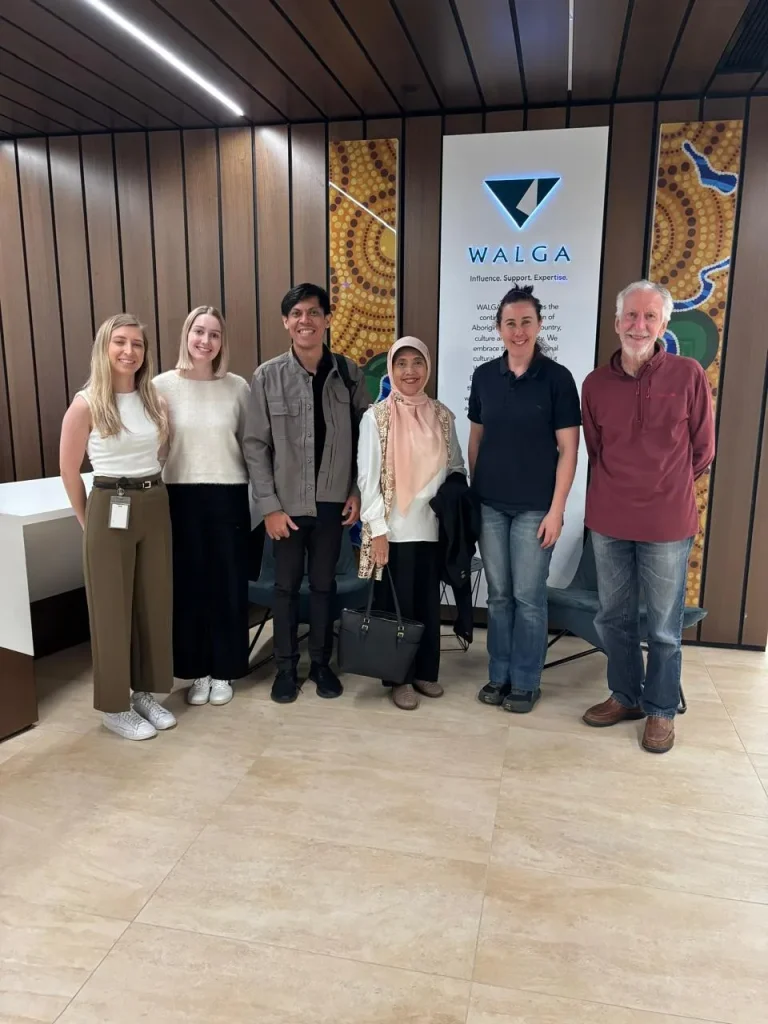
In their interview with the Western Australia Local Government Association (WALGA), the UNDIP team learned about Western Australia’s long-term environmental education strategies.
WALGA representatives explained that waste sorting education begins at the elementary school level through interactive waste-sorting games, designed to teach children how to distinguish waste types in a fun and practical way.
This gamified approach has proven effective in instilling environmental awareness from an early age and building a generation committed to recycling and ecological responsibility.
In addition to education, WALGA also oversees coordination, auditing, and the development of waste management standards across local governments in Western Australia, ensuring transparency, consistency, and evidence-based policymaking.
Technological Innovation: Waste to Energy and the Green Economy
The UNDIP study also highlighted technological innovation at the ACCONA Waste to Energy (WtE) facility in Kwinana, which processes up to 400,000 tons of waste annually and generates electricity for more than 60,000 households in the Perth–Fremantle region.
This project exemplifies the synergy between the public and private sectors in building a green economy that reduces landfill dependency while creating environmentally friendly employment opportunities (green jobs) for local communities.
Relevance and Implications for Semarang City
Findings from this study suggest that Fremantle’s collaborative governance model could serve as a strategic blueprint for Semarang City in enhancing its waste management systems.
The UNDIP research team proposes a conceptual model called Collaborative Circular Waste Governance, which integrates the quadruple helix approach—collaboration among government, communities, private sector, and academia.
This model is expected to improve policy effectiveness, empower local economies, and strengthen public environmental awareness.
Contribution to SDGs and UNDIP’s Research Master Plan
This research directly contributes to several Sustainable Development Goals (SDGs):
- SDG 1 – No Poverty: creating economic opportunities through recycling and compost industries;
- SDG 2 – Zero Hunger: supporting food security via organic waste composting;
- SDG 11 – Sustainable Cities and Communities: promoting resilient and adaptive urban governance;
- SDG 12 – Responsible Consumption and Production: encouraging sustainable consumption behavior;
- SDG 17 – Partnership for the Goals: fostering international academic collaboration between UNDIP and the City of Fremantle.
Thus, this study not only represents knowledge and policy transfer between nations but also reinforces UNDIP’s role as a World Class Research University (WCU) committed to producing socially and environmentally impactful research.

